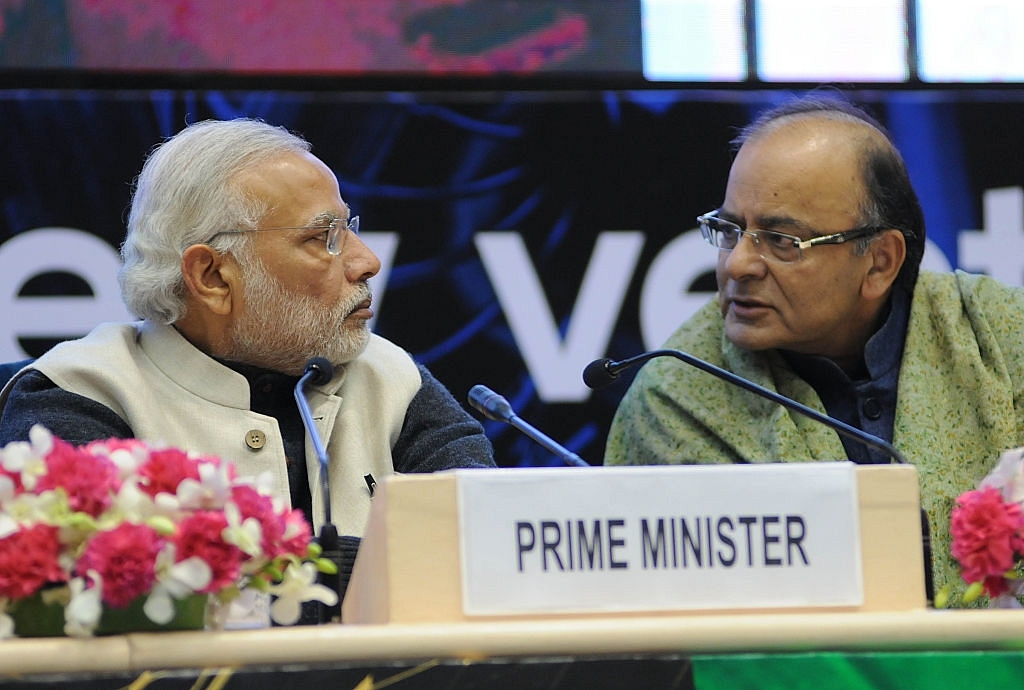Politics
Budget in Early Feb: Has NDA Managed To Squeeze 6 Budgets Into A 5-Yr Term?
- If the NDA government brings forward the dates of the Union Budget, it would get a chance to present one before the code of conduct is enforced in 2019

Narendra Modi (L) and Arun Jaitley (STRDEL/AFP/Getty Images)
The Union cabinet’s decision yesterday (21 September) to merge the rail budget into the Union budget and the bringing forward of the budget date to early February or late January have political implications.
While the
merger of the rail budget will free the railways from political pressure to
chase populist schemes, the NDA government may give itself an extra budget before the
general elections in 2019 if it brings forward the date of the Union Budget.
To take the
second point first: the last Union budget of an outgoing government is usually
a status quo budget, with few new tax provisions. Reason: by the time it is
presented and parliament begins discussions on it, the Election Commission’s
code of conduct kicks in. Lok Sabha elections are due in April-May 2019. A
budget presented in February-end would not be passed till April-end at least.
But in
2019, if the NDA manages to bring forward the Union budget date to, say, mid-January,
it will essentially have given itself an additional budget to woo the voter
with.
The second implication
of the cabinet’s decision is that there will be no need for interim budgets any
more – unless a government falls before a budget is passed. With budgets coming
in January, they can effectively be passed by March, and thus the financial
year can begin without an interim budget. Interim budgets or votes-on-account
are needed to allow government to spend in a financial year which has already begun,
but where the budget is still to be passed.
The Union budget presentation date may undergo another change next year if the Shankar Acharya panel recommends a change in the financial year itself. It is due to submit its report by 31 December. Right now India follows an April-March financial year, but this is said to affect economic projects as the fate of the all-important monsoon is unknown when the budget is drawn up. The idea is to shift to a January-December financial year, which means the budget presentation date could move to October-November, where the finance minister already knows how the kharif crop has fared.
As for the merger of the railway budget with Jaitley’s opus, it will mean the budget in 2017 may be longer than usual, since it will have to include pages on the railways’ plans. Suresh Prabhu, the Railways Minister, may have lost his day in the sun, but he will get to edit bits of Jaitley’s speech involving his ministry.
Introducing ElectionsHQ + 50 Ground Reports Project
The 2024 elections might seem easy to guess, but there are some important questions that shouldn't be missed.
Do freebies still sway voters? Do people prioritise infrastructure when voting? How will Punjab vote?
The answers to these questions provide great insights into where we, as a country, are headed in the years to come.
Swarajya is starting a project with an aim to do 50 solid ground stories and a smart commentary service on WhatsApp, a one-of-a-kind. We'd love your support during this election season.
Click below to contribute.
Latest